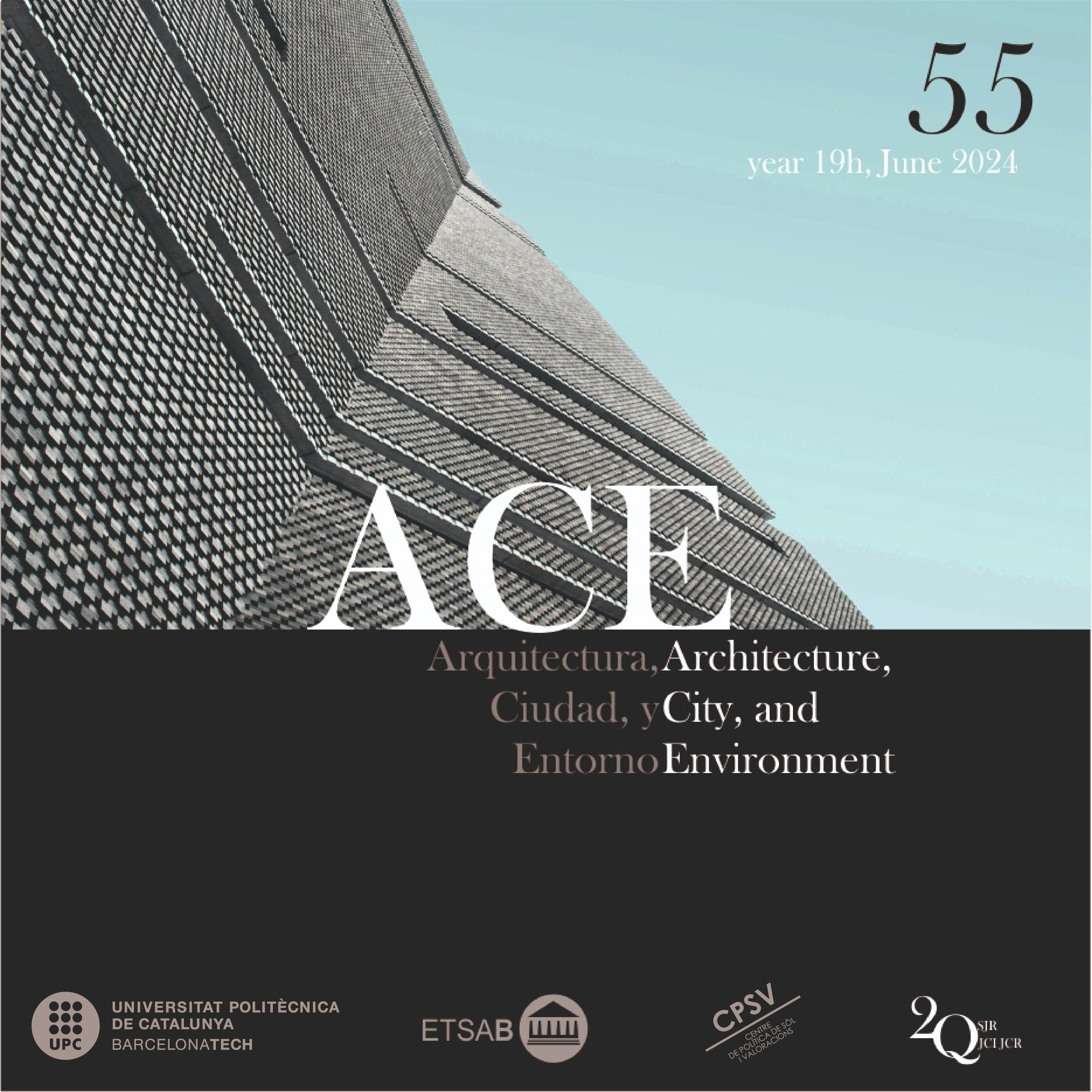Accesibilidad universal y patrimonio en el reto de una sociedad inclusiva. La arquitectura residencial del siglo XX en el siglo XXI
DOI:
https://doi.org/10.5821/ace.19.55.12751Palabras clave:
accesibilidad universal, patrimonio contemporáneo, innovación social, regeneración urbanaResumen
La incorporación de las competencias sociales, en los itinerarios curriculares de las enseñanzas técnicas, pone de manifiesto la demanda de profesionales e investigadores formados en un entorno multidisciplinar y con un alto compromiso social. Las mejoras y avances de la técnica permiten materializar la rehabilitación y adecuación del conjunto residencial del siglo XX a las necesidades de los colectivos necesitados, pero no se debe olvidar las necesidades particulares de los individuos, sobre todo las de aquellos con una discapacidad sensorial y/o cognitiva, en origen o sobrevenida, y las de las personas mayores. Junto a esas mejoras técnicas, visibles desde hace décadas en actuaciones como ascensores, rampas…, quedan otras barreras invisibles a las que hay prestar especial y pronta atención. Trabajando desde una perspectiva holística se propone un ámbito de investigación en el marco de ayudas institucionales a las Universidades, en concreto en las referentes a las políticas de la vivienda. El objetivo principal del proyecto ACCUNA_20 es aportar, desde la innovación social, soluciones que permitan ampliar el número de beneficiados de las políticas de rehabilitación urbana y que permitan establecer nuevas relaciones sociales y sinergias
Publicado
Número
Sección
Licencia
COPYRIGHT
El contenido de los artículos y los comentarios en ellos expresados son responsabilidad exclusiva de sus autores, y no reflejan necesariamente la opinión del comité editor de la revista. Los trabajos publicados por ACE pueden reproducirse bajo la licencia CC-BY-NC-ND 3.0 ES más información http://creativecommons.org/licenses/by-nc-nd/3.0/es/
Lo que implica que las personas autoras sólo retienen y mantienen los derechos de Copyright dentro de las limitaciones incluidas en la licencia anterior.


































